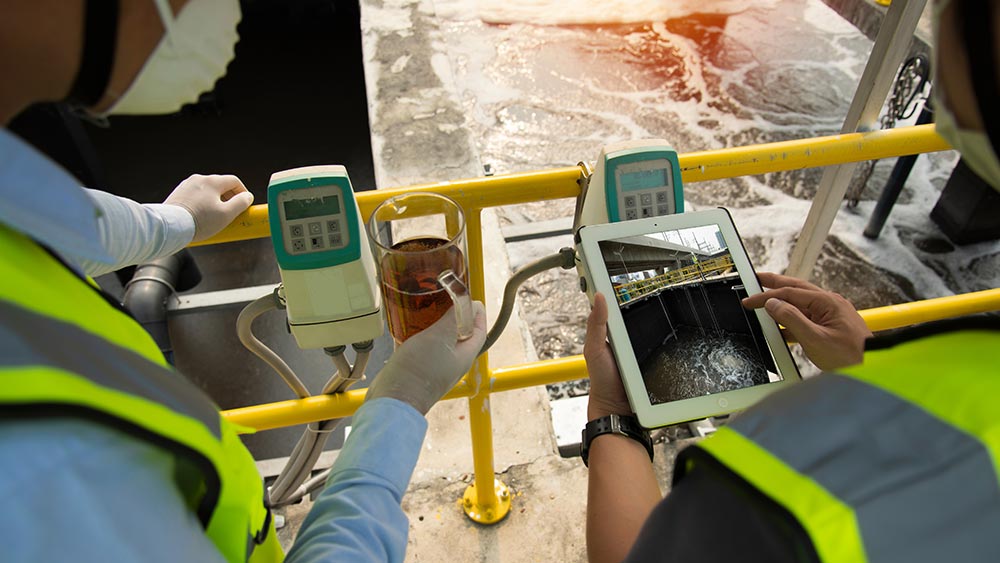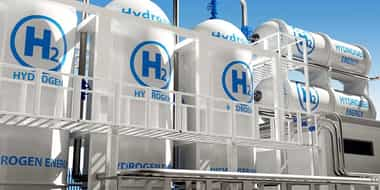
Nov 19, 2024
Blog Energy & Sustainability Emerging Trends in Water Meter Technology
In recent years, the water management industry has witnessed a significant transformation with the advent of smart water meters. Unlike traditional water meters requiring manual readings, smart meters allow for automated and real-time data collection. This innovation has enabled utilities to monitor water usage more efficiently and accurately, reducing the potential for human error and providing consumers with detailed insights into their consumption patterns.
Smart water meters have advanced sensors and communication technologies that transmit data to utility companies, often via wireless networks. This enables a two-way communication channel, allowing utilities to collect data and send information or updates back to the meter. This level of interaction is pivotal in identifying leaks, implementing demand response programs, and encouraging water conservation behaviors among consumers.
According to BCC Research, the global market for water meters is projected to grow from $15.0 billion in 2023 to $19.3 billion by 2029, with a compound annual growth rate (CAGR) of 4.5% from 2024 to 2029.

The global market for water meters is estimated to increase from $15.0 billion in 2023 to reach $19.3 billion by 2029, at a compound annual growth rate (CAGR) of 4.5% from 2024 through 2029.
The smart water meters and AMI systems market is poised for significant growth, driven by several vital dynamics. The primary driver is the increasing need for efficient water management solutions in the face of urbanization and climate change. Additionally, regulatory pressures and policy incentives encourage utilities to adopt advanced metering technologies to meet water conservation targets.
The rise of smart homes and the Internet of Things (IoT) also contributes to market growth. As consumers become more accustomed to connected devices, the demand for smart water meters that integrate seamlessly with other home automation systems is expected to rise. Furthermore, advancements in communication technologies and data management are reducing the costs associated with AMI systems, making them more accessible to a broader range of utilities.
Advanced Metering Infrastructure (AMI) represents a significant leap forward in water management technology. AMI systems integrate smart meters with communication networks and data management systems, creating a comprehensive solution for monitoring and managing water resources. This infrastructure allows utilities to analyze vast amounts of data, facilitating more informed decision-making processes.
The technology will replace the need for manual collection of reading meters, as manual collection of reading meters is time-consuming and often may be inaccurate or have measuring errors. By incorporating AMI, data collection is performed automatically, which informs utility and service operations while enhancing customer engagement through available online portals and apps that provide users with accurate information about their water usage.
Urbanization and the emergence of smart city initiatives are powerful catalysts driving the demand for advanced water metering technologies. As urban populations swell, the pressure on water resources intensifies, necessitating more efficient and sustainable management solutions. Smart cities aim to leverage technology to enhance residents' quality of life, and smart water meters are a critical component of this vision.
Integrating smart meters with other urban infrastructure systems enables a holistic approach to resource management in smart cities. For example, water usage data can be combined with weather forecasts to optimize irrigation systems or linked with energy management systems to coordinate water and energy conservation efforts. This interconnectedness improves efficiency and supports sustainability and resilience initiatives in urban environments.
The future of water meter technology is bright, with several emerging trends set to shape the industry. One notable development is the increasing focus on sustainability and environmental impact. This is driving innovations in meter materials and manufacturing processes, aiming to reduce the carbon footprint of these devices.
In conclusion, the advancements in smart water meter technology and AMI are revolutionizing water management and conservation. As these technologies continue to evolve, they offer promising solutions for addressing the challenges of urbanization, resource scarcity, and environmental sustainability. The ongoing development and implementation of these innovations will undoubtedly play a crucial role in shaping the future of water management.
Consider becoming a member of the BCC Research library and gain access to our full catalog of market research reports in your industry. Not seeing what you are looking for? We offer custom solutions too, including our new product line: Custom Intelligence Services.
Contact us today to find out more.

Heena Singh is a Senior Executive Email Marketer at BCC Research, with a master’s degree in computer applications. She specializes in content creation and data analytics.

Electrical switches—devices that control the flow of electricity—are the backbon...

As the world accelerates toward net-zero emissions, hydrogen, and ammonia have e...

Hydrogen technology is widely used across industries like glass, fertilizer, met...

We are your trusted research partner, providing actionable insights and custom consulting across life sciences, advanced materials, and technology. Allow BCC Research to nurture your smartest business decisions today, tomorrow, and beyond.
Contact UsBCC Research provides objective, unbiased measurement and assessment of market opportunities with detailed market research reports. Our experienced industry analysts assess growth opportunities, market sizing, technologies, applications, supply chains and companies with the singular goal of helping you make informed business decisions, free of noise and hype.